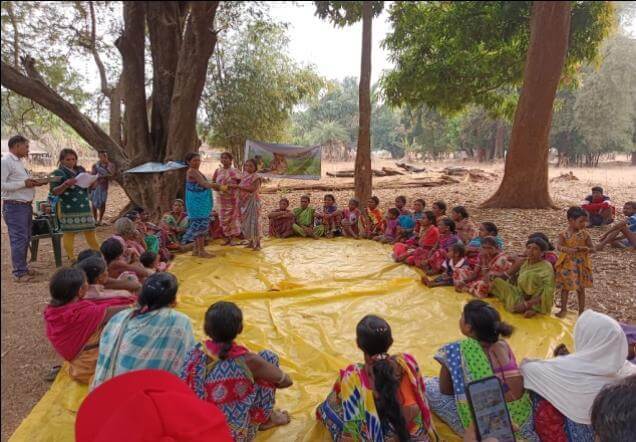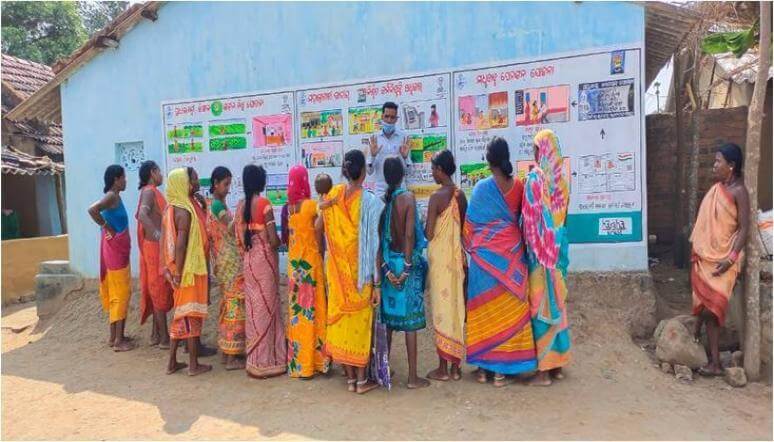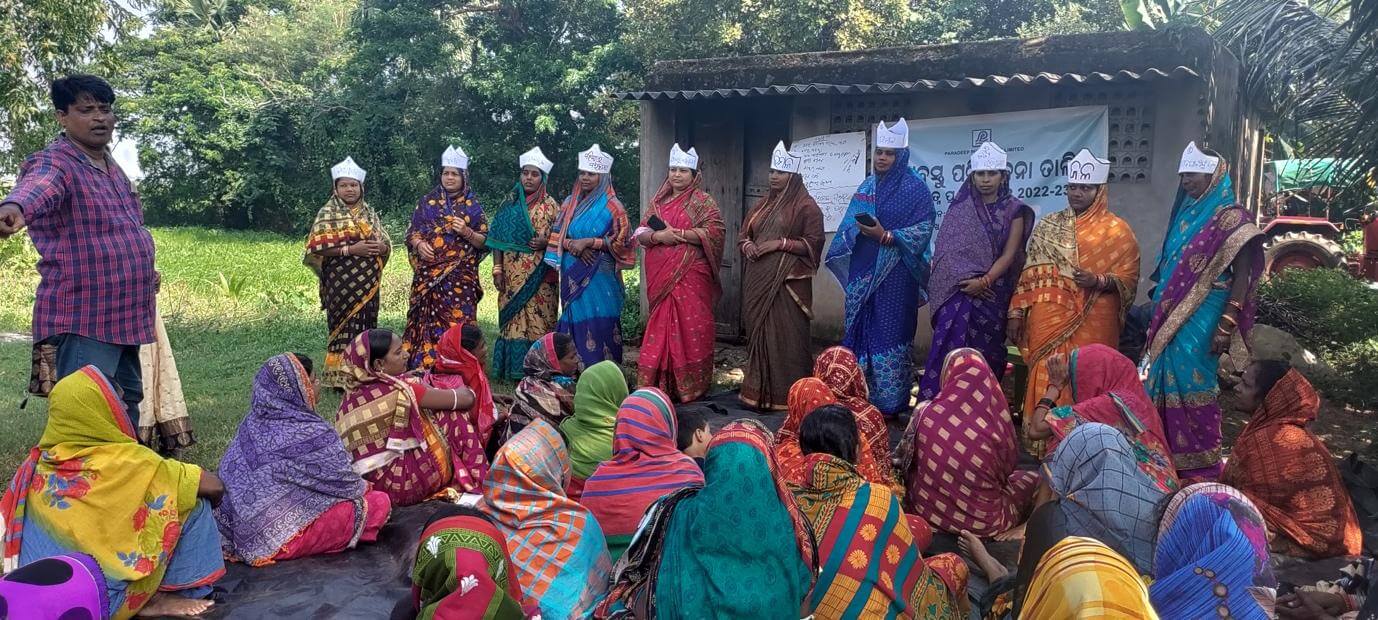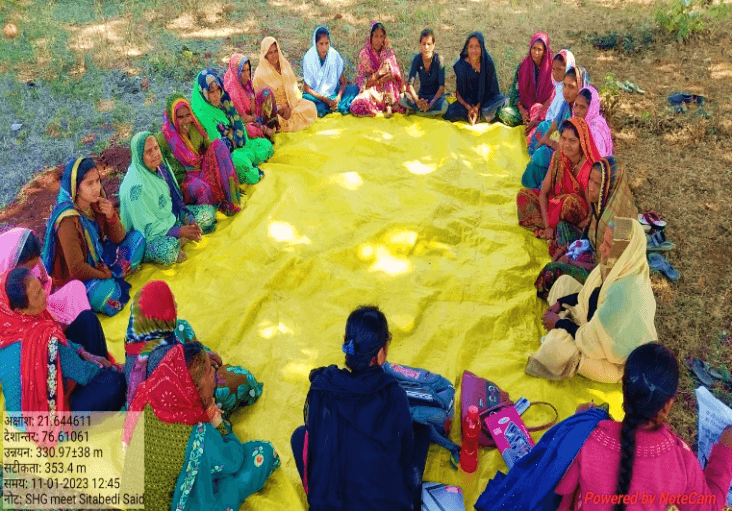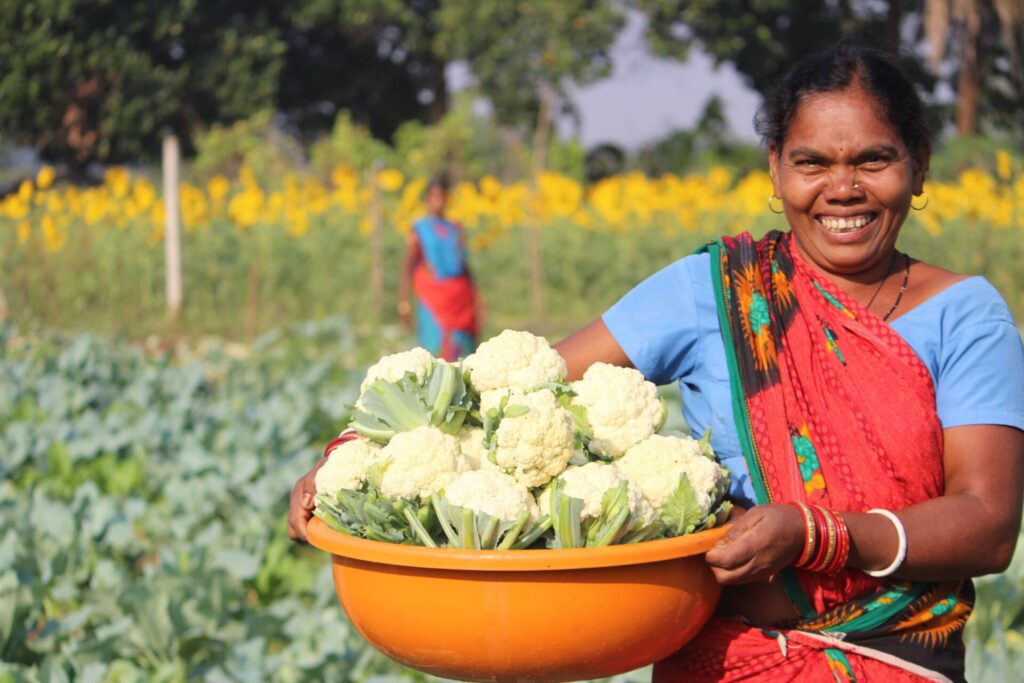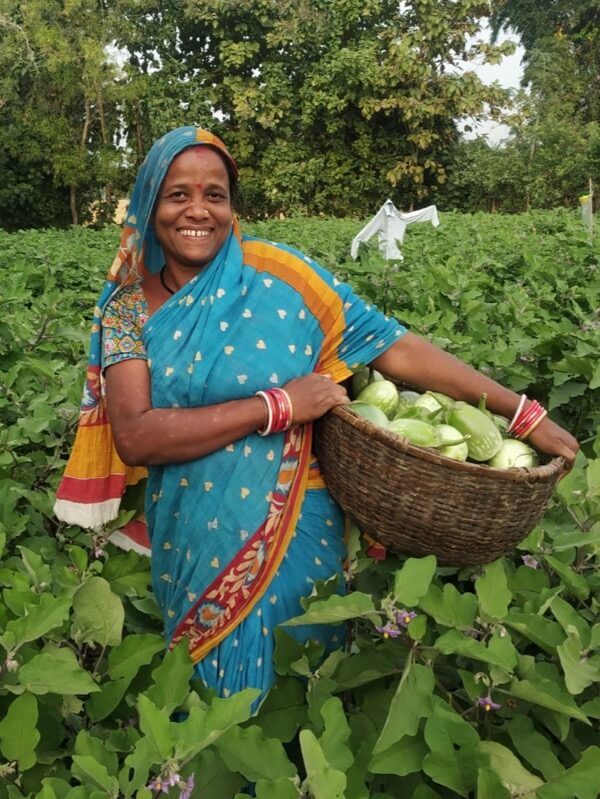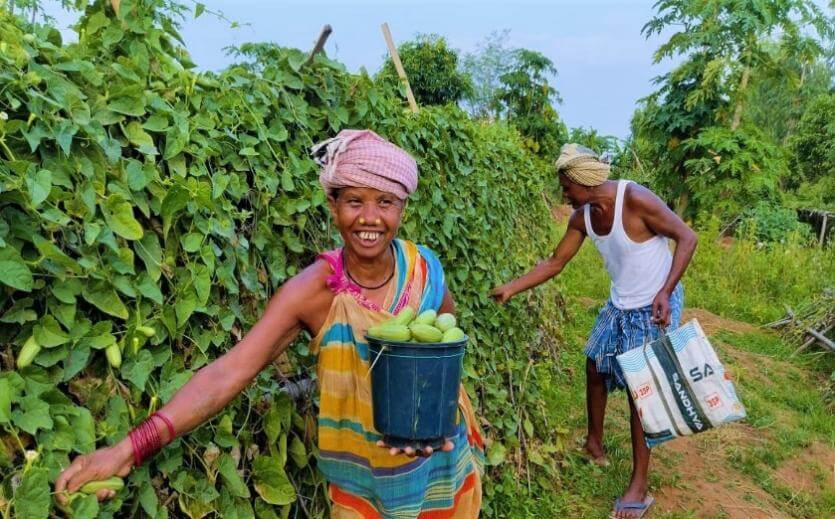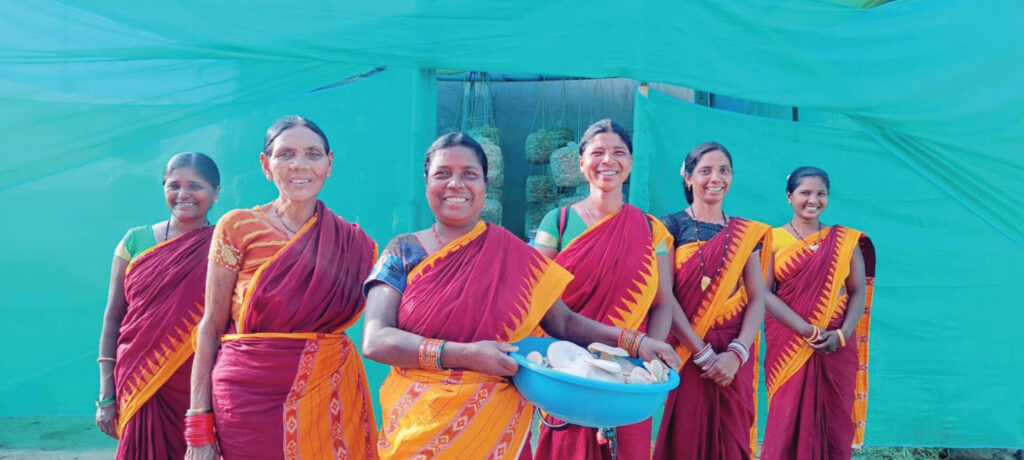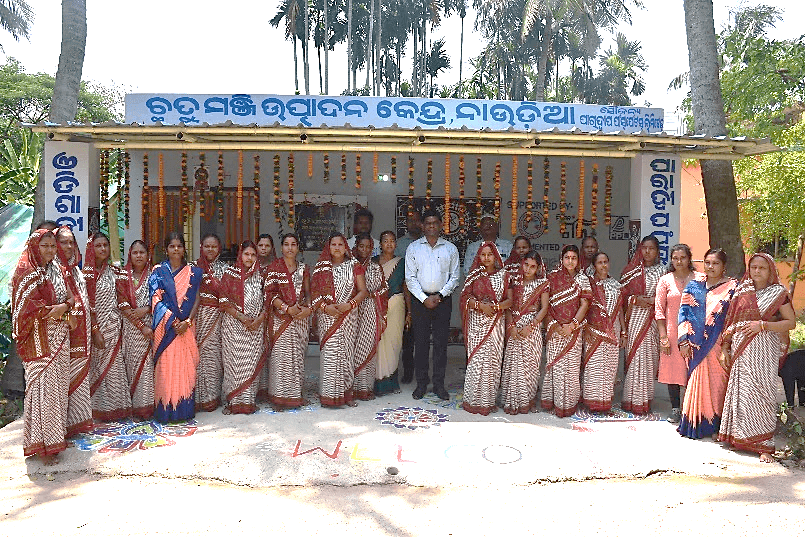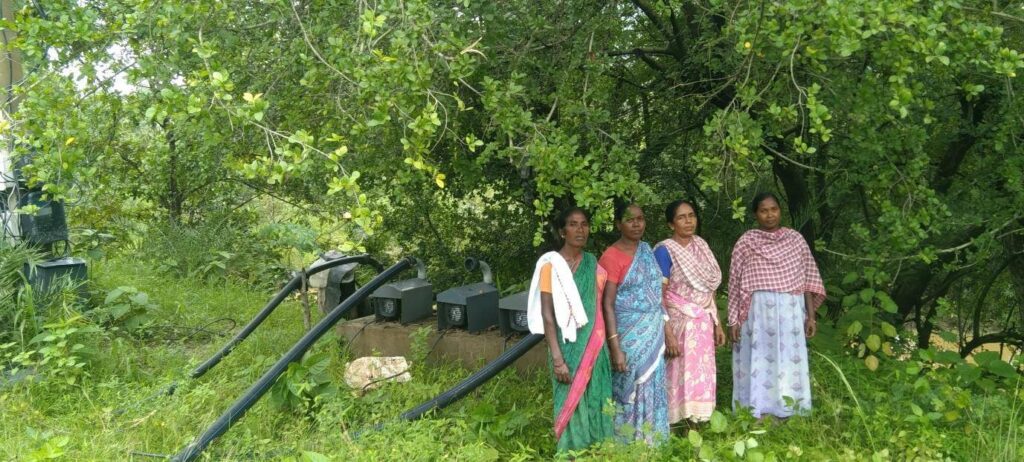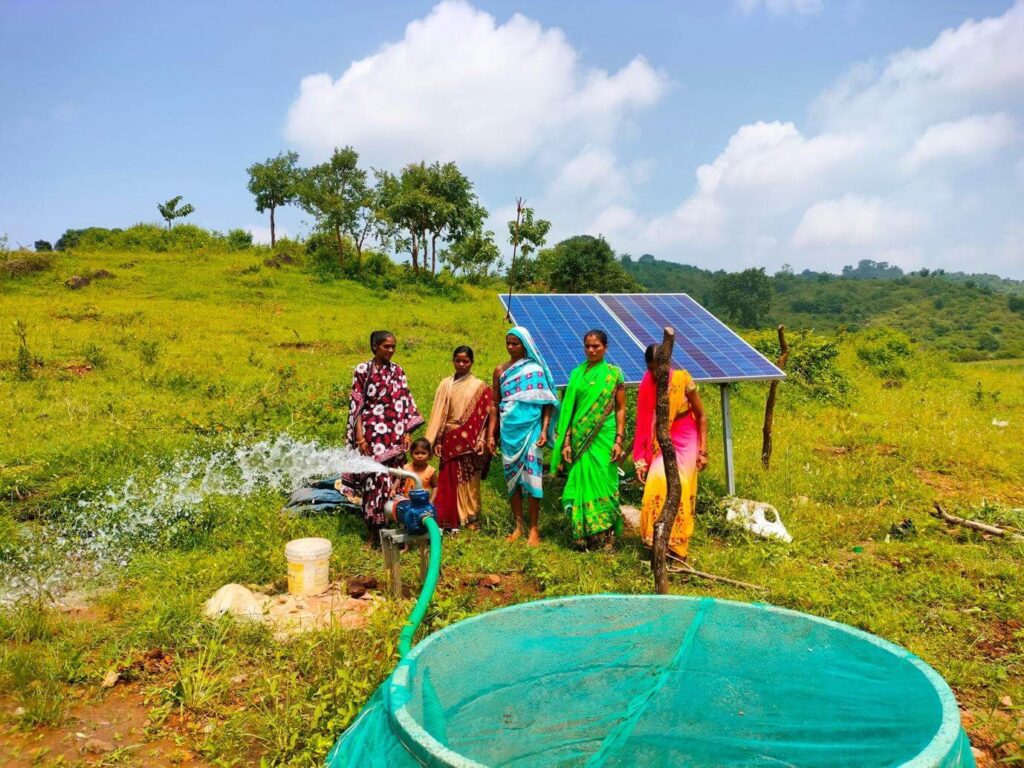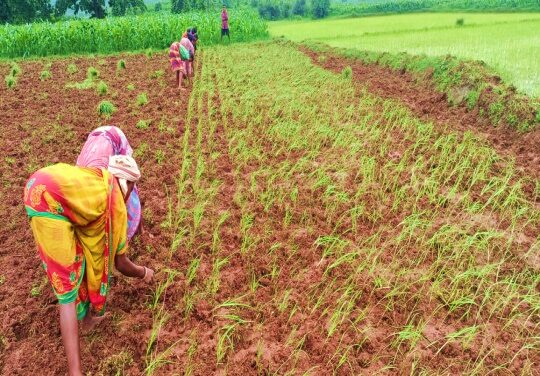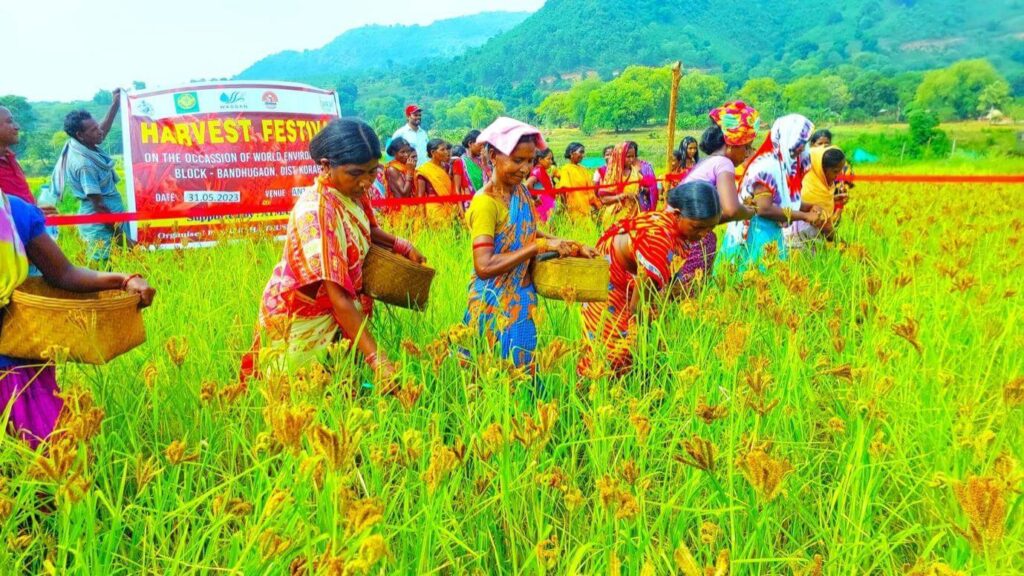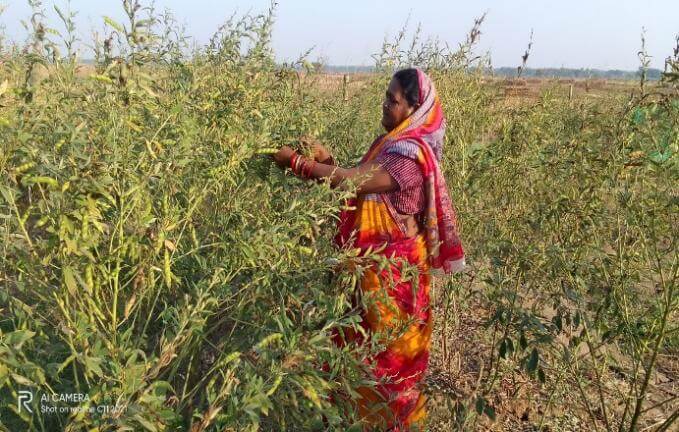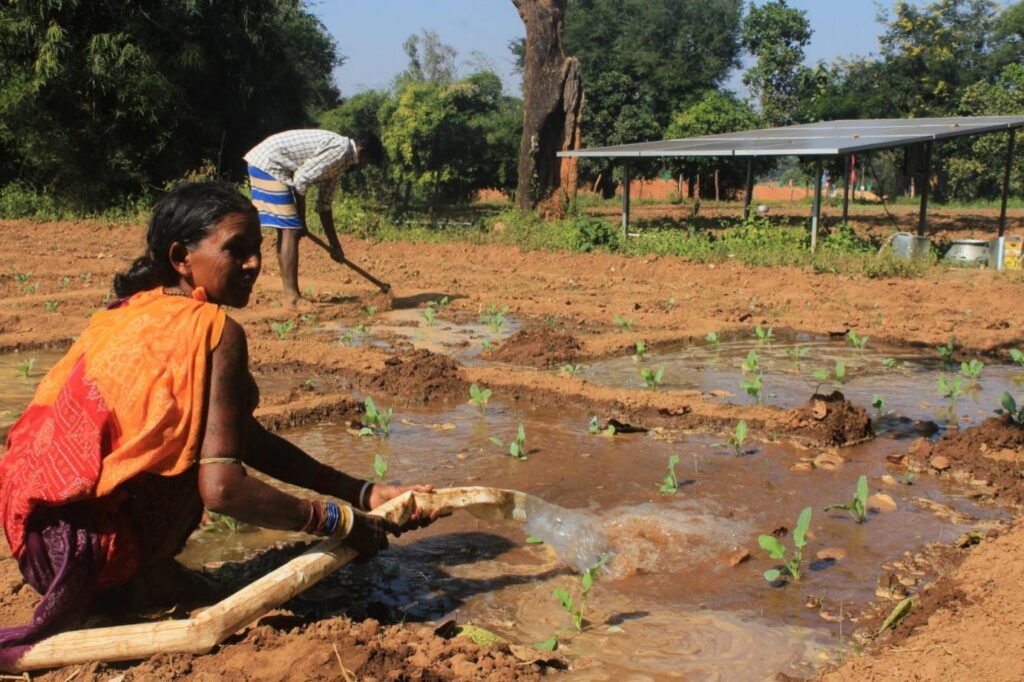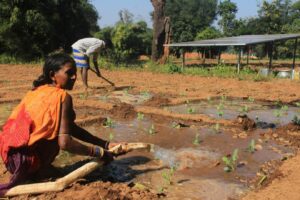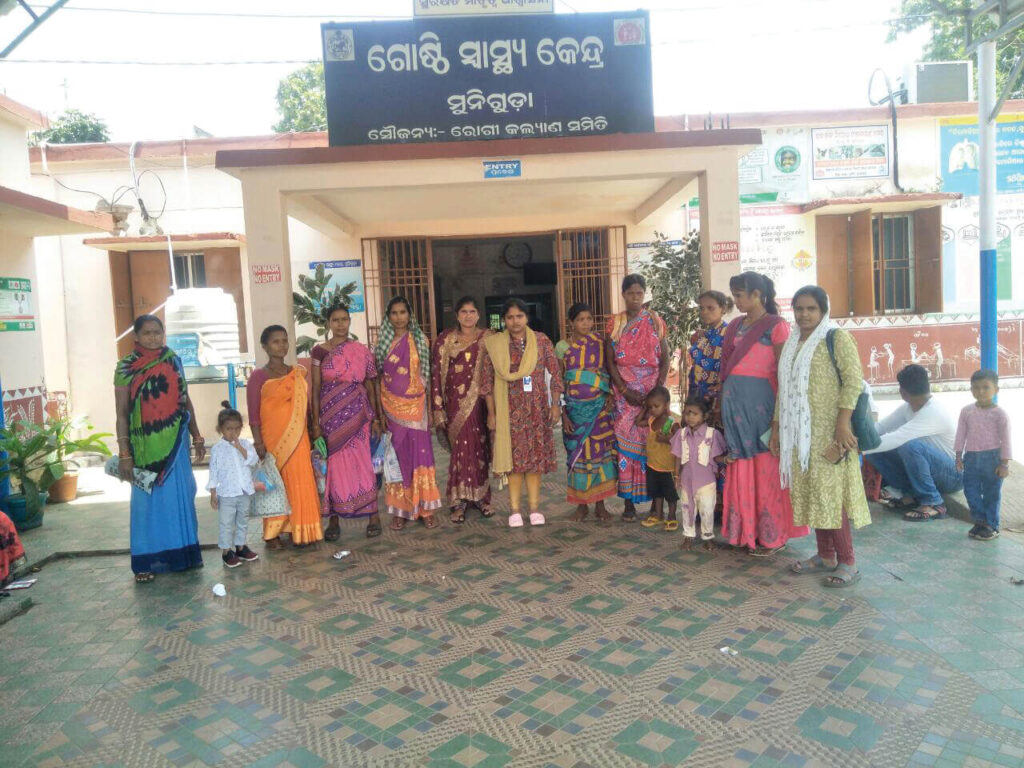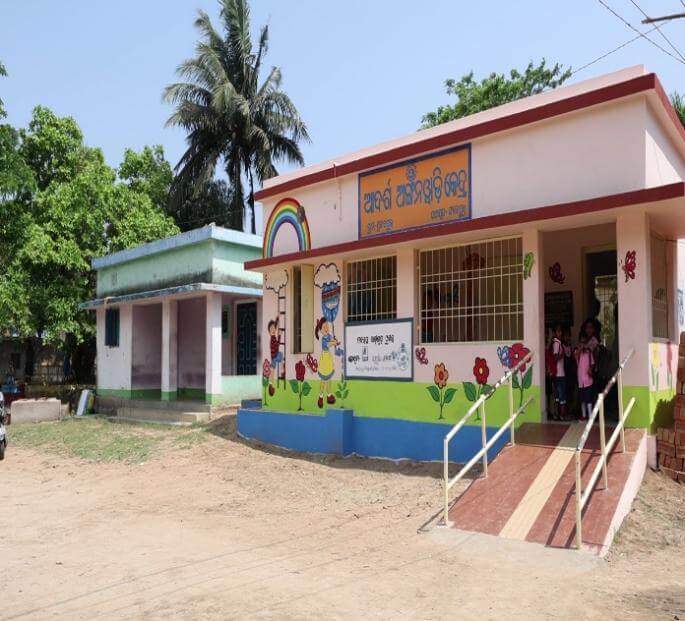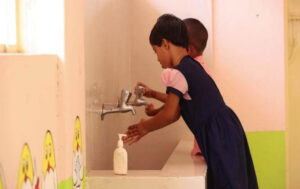
Our Work
Transforming Lives Through Our Programs
We are dedicated to fostering sustainable development and improving livelihoods through a diverse range of programs.
Our initiatives target key areas such as institution building, livelihood enhancement, livestock management, producer organizations, education, renewable energy, WASH (Water, Sanitation, and Hygiene), and natural resource management.
By addressing these critical aspects, we aim to empower communities, promote inclusivity, and ensure long-term growth and resilience.
Institution
Building
Harsha Trust builds innovative rural institutions by organizing women-centric community institutions.
With a macro-economic perspective, these women-centric institutions formalize collective action as a major step towards poverty reduction through the promotion of sustainable livelihood models.
Our approach enhances social responsiveness to challenges faced by the tribal communities through improved political participation of women, fostering social and financial inclusion.
Harsha Trust has also included ultra-poor households in its project design as a strategic approach toward reaching the most marginalised communities, driving holistic rural transformation.
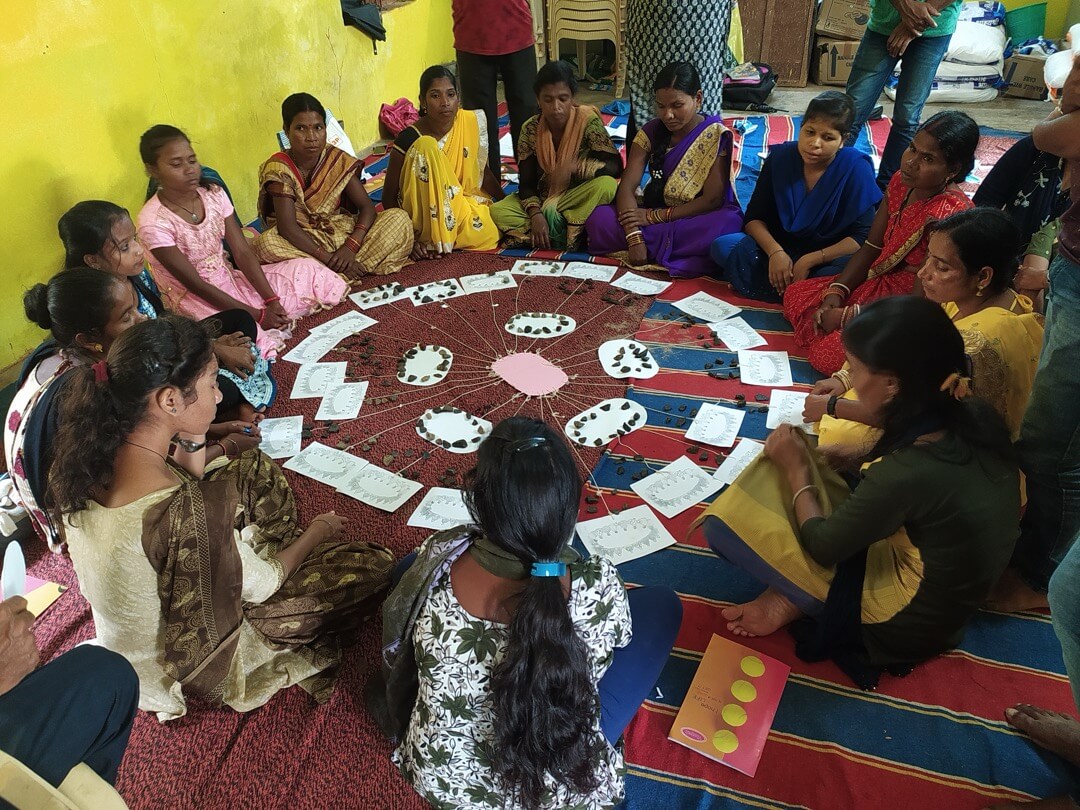
The women collectives play the role of change agents by anchoring the local governance and integrating natural resource management. The institutions supported and promoted are:
- Producer Groups
- Self Help Groups
- Cluster Level Forums
- Farmer Producer Organizations
Formed
Strengthened
Supported
Promoted
Mobilized (₹)
Ensured (₹)
Food & Nutrition
Security
Harsha Trust pioneers in integrating unique on-farm and off-farm interventions and nutrition programmes to ensure dietary diversity and enhance the Food and Nutrition Security of rural tribal households.
These interventions are aligned to promote sustainable farming systems with improved production practices, enhanced access to irrigation facilities and integrated pest and nutrient management on major crops such as paddy and maize.
Additionally, the focus on crop diversification supports the resilience of these farming communities. By adopting various agricultural practices, we help farmers mitigate risks associated with climate change and market fluctuations.
This has led to increased production and availability of food grains for consumption. Our initiatives contribute significantly to improving the nutritional status and overall well-being of rural households.
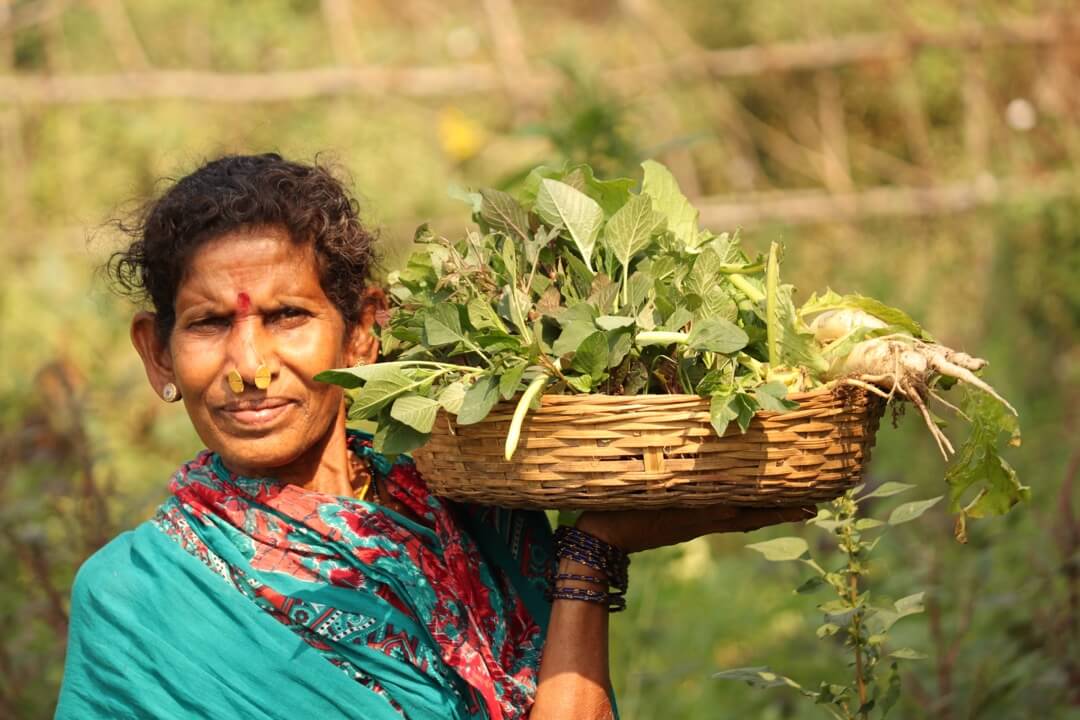
The initiatives promoted are:
- Improved Varieties of Food Crops
- Crop Diversification
- Promotion of Millet as Climate Resilient Crop
- Nutrition Programme
- Nutrition Gardens
Nutrigardens
Maize cultivation
Millet cultivation
Pulses and Oilseeds
Paddy cultivation
Livelihood
Security
Harsha Trust aims to enable farming communities to access resources, generate assets, and create opportunities to maintain and sustain their livelihoods in a dignified manner.
By enhancing their role and participation in agriculture and livestock value chains, the empowered communities could create sustainable livelihood models that enhance income security and ensure reverse migration, augmenting the economic sustainability of farming communities.
Pioneering the establishment of on-farm and off-farm livelihood models, initiatives have been launched to enhance income security, create long-term assets, and transform the perspective of rural tribal households towards livestock as a viable livelihood rather than solely a means of risk mitigation.
The livelihood planning exercise organized at the SHG level enables each HH to envision, reflect, and devise an appropriate livelihood plan with the support of community institutions, CLFs, and FPOs.
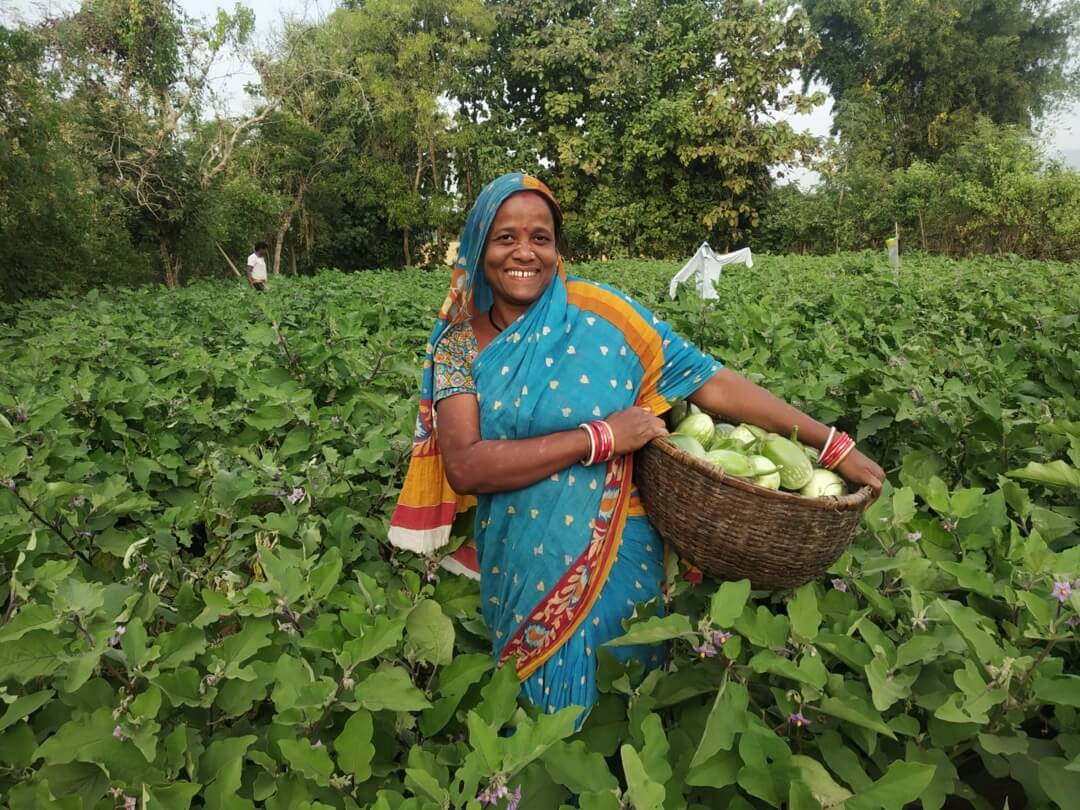
By facilitating timely access to credit and inputs, technical knowledge, production, postharvest management, processing/ value addition, storage, and collective marketing, the FPOs play a critical role in providing end-to-end support in promoting sustainable livelihood models. The models promoted are:
- On-Farm Livelihood Models
- Agriculture Production Clusters
- WADI Models
- Off-Farm Livelihood Models
- Micro Enterprises
Commercial Vegetable Cultivation
Goat Rearing
Poultry Rearing
Access to Entitlements & Convergence
Harsha Trust enables community institutions to converge and leverage schemes and entitlements, by unleashing the potential of WSHGs to achieve the social, economic, and political empowerment of women.
We ensure partnerships and convergence with Government Departments and other CSOs and Resource Agencies to integrate and provide better access to primary entitlements, financial services, credit linkages, development schemes, and technical knowledge services.
We create awareness among women members through social sub-committees which enable them to voice out their demands regarding their rights and entitlements.
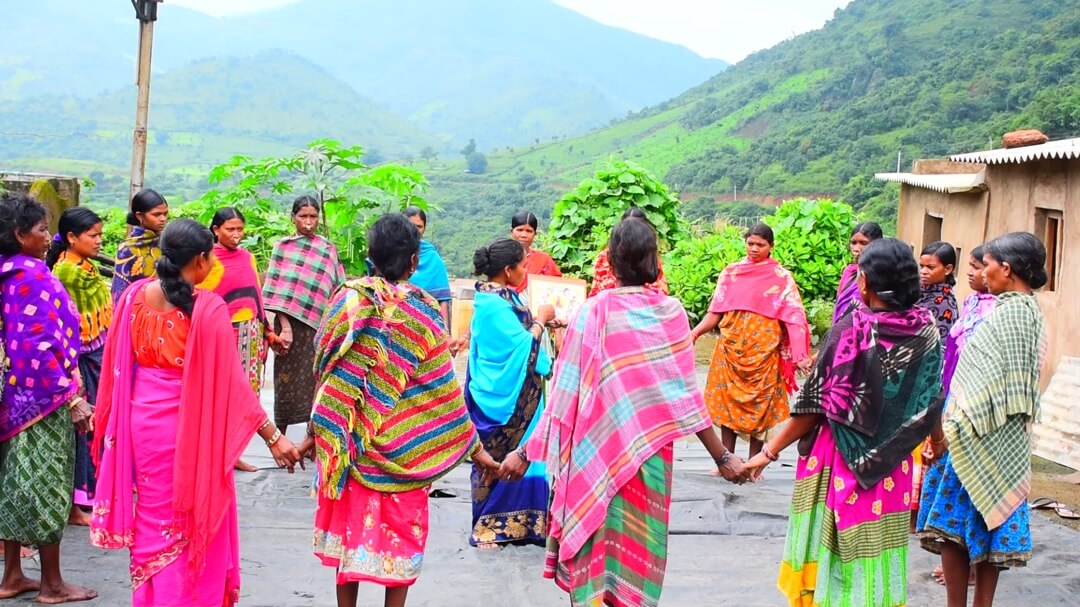
The CRPs help to improve member awareness, and co-ordination with the service providers and also support the women members to register for the appropriate schemes and entitlements such as Leveraging Government Schemes and Entitlements leading to the following:
- Social Inclusion
- Financial Inclusion
- Digital Inclusion
MGNREGA
BSKY
Direct Benefit Transfers
under PM Kisan Yojana
via Madhubabu Pension Yojana
Clean Energy Adoption & Climate Change
By promoting clean energy entrepreneurship, we harness renewable energy sources to improve irrigation facilities and enhance the value chain with climate-smart and climate-resilient cropping systems, in order to enhance sustainability and combat climate change.
We focus on integrating energy in the value chain through the DRE solutions, as an innovative approach towards enhancing efficiency and improving the stake of farmers in the value chain.
By collaborating with key stakeholders, the use of renewable energy at each stage of crop production, processing, and value addition is ensured.
This will ensure healthy produce with reduced carbon emissions, leading to complete energy autonomy in the long run.
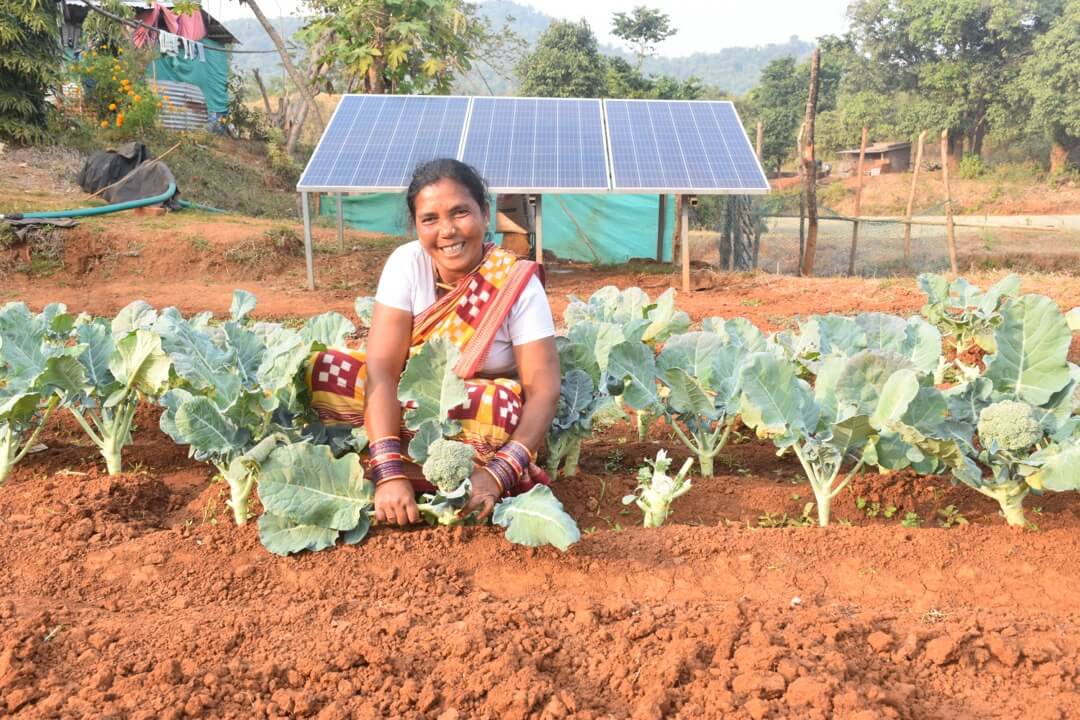
Some of our solar-powered interventions include:
- Solar irrigation systems
- Solar fencing and traps
- Solar sprayers
- Solar lighting
- Solar cold storages and dryers
- Solar hullers and pulverisers
Solar irrigation systems
Solar-powered systems
Solar Fencing
Solar Traps
Solar Lighting
Integrated Natural Resource Management and Water Security
Integrated Natural Resource Management (INRM) incorporates various interlinkages between land, water, and livelihoods of people, aiming to develop interventions for the holistic development of land, water, and natural resources.
Designing and developing Village-level INRM Plans through women-centric community institutions (SHGs, CLF, PRIs), and other line departments is the key focus of the INRM approach.
INRM approach will be integrated into the GPDP and aims to improve the water harvesting and recharge through upland management, medium, and low-land treatment.
And organizing Water user groups (WUGs) at the village level for judicious management of water resources and enhance water governance along with harnessing local knowledge.
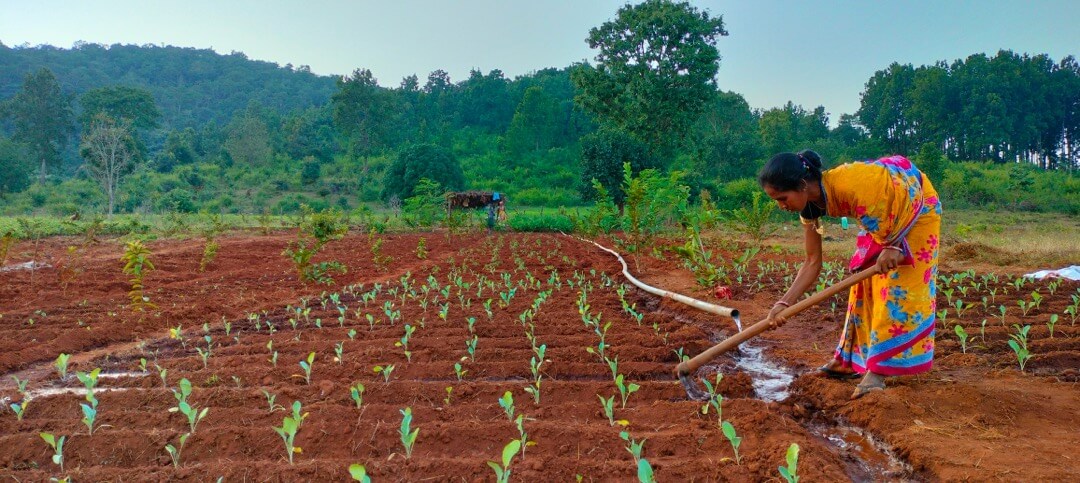
We are consistently engaged in the planning and participation of community institutions for leveraging government schemes and programmes such as MGNREGA for watershed development, the Horticulture Department for plantation, the Forest Department, the Irrigation Department, etc. to enhance natural resource management.
- Holistic INRM Approach
- Community-Centric Planning
- Collaborative Resource Management
Health, WASH and Education
We accelerate holistic development through Health and Education Programmes and WASH initiatives to bridge learning gaps for the children at the village level and enhance access to safe drinking water and sanitation facilities for rural households.
- Holistic Development Initiatives
- Improved Access to Resources
- Community-Level Impact
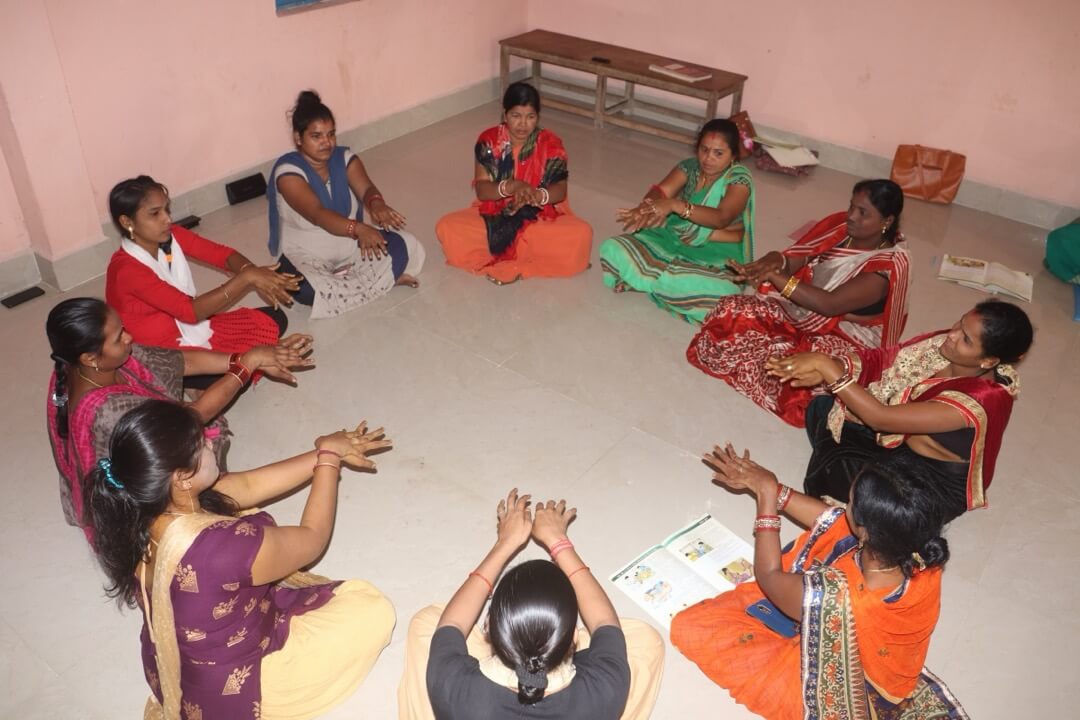
created & renovated
units installed
WASH interventions
benefited from Education initiative
from Education initiative
We're Committed Towards Achieving 13 SDGs

